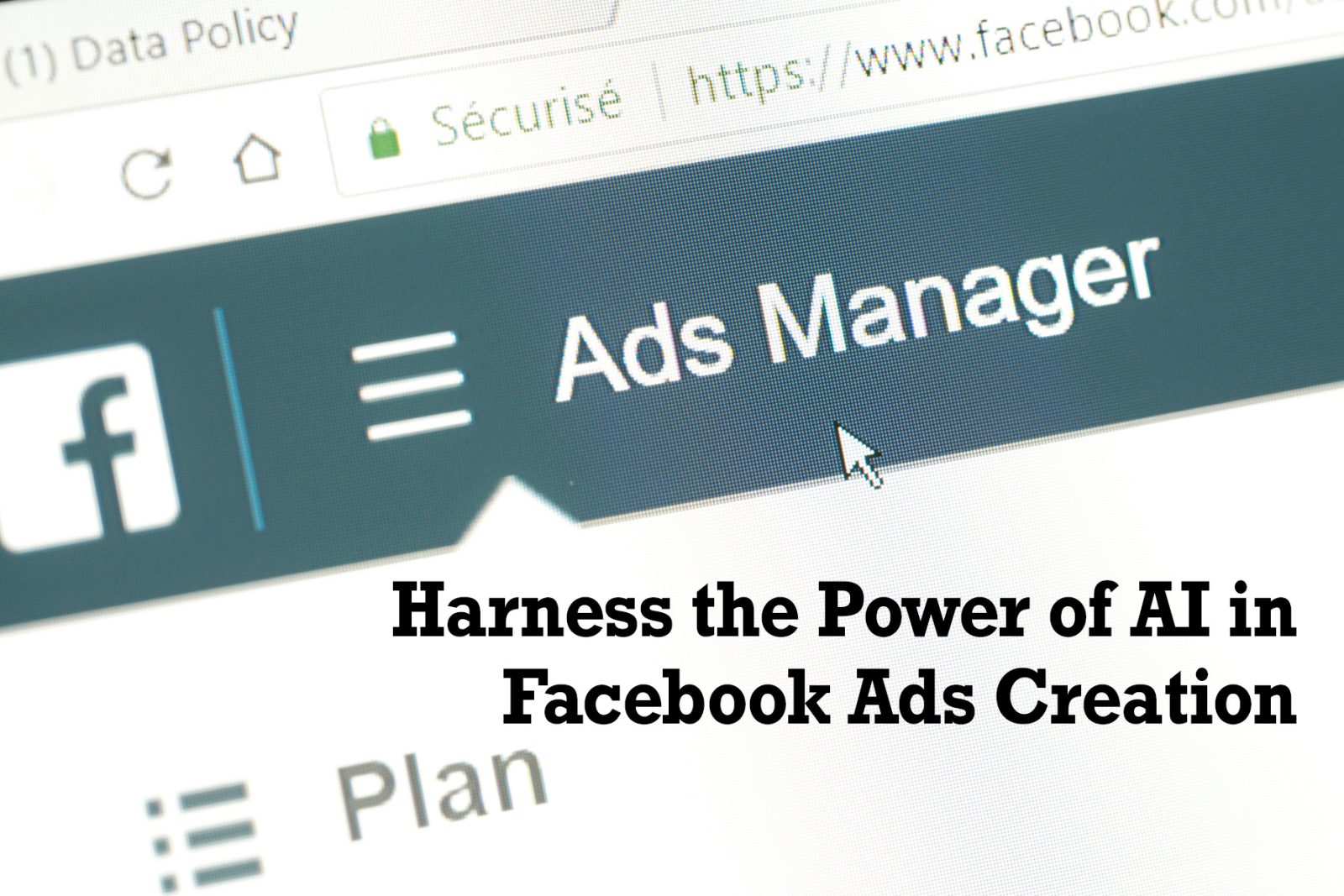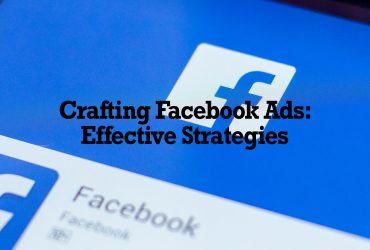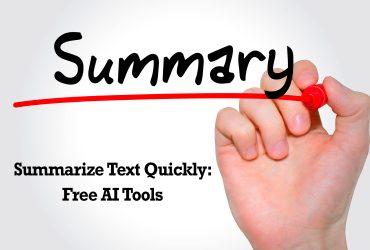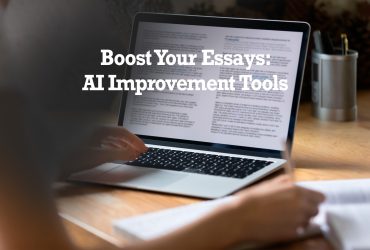Artificial intelligence (AI) is revolutionizing the way businesses approach Facebook advertising. By harnessing AI’s power, advertisers can analyze vast amounts of data, uncover insights, and automate once-time-consuming tasks. This integration of technology enables more efficient ad campaigns tailored to the behaviors and preferences of target audiences.
The key advantages of using AI in Facebook ads lie in its ability to enhance targeting precision, optimize ad spend, and track performance with greater accuracy. AI algorithms can sift through data to identify patterns and trends, predicting which users will most likely engage with an ad. This level of targeting sophistication ensures that ads reach individuals genuinely interested in the product or service, increasing the likelihood of conversion.
Furthermore, AI significantly streamlines the ad creation process. It can generate ad copy, suggest compelling imagery, and recommend the best times to post ads. By automating these elements, AI saves valuable time and helps advertisers maintain a consistent and high-performing ad presence on Facebook. The result is a more efficient campaign that delivers a more substantial return on investment (ROI), making AI an indispensable tool in the modern advertiser’s toolkit.
Benefits of Using AI Tools for Facebook Ads
Incorporating AI tools into your Facebook advertising strategy can significantly improve ad targeting. AI analyzes user data, including past behaviors and preferences, to identify the most relevant audience for your ads. This ensures that your messaging reaches individuals more likely to be interested in your offerings, increasing the effectiveness of your ad spend.
Enhancing ad creativity is another significant benefit of AI. By leveraging machine learning, AI tools can suggest ad formats, colors, and wording that resonate with your target audience. Personalized content created by AI increases engagement and drives better campaign results. Moreover, AI can perform A/B testing at scale to determine which ad variations perform best, allowing for continuous improvement of ad creatives.
AI-driven optimizations are crucial to boosting ad performance and conversion rates. By constantly analyzing how ads are performing, AI can make real-time adjustments to bidding strategies, audience targeting, and ad placements. This dynamic approach to ad management helps maximize your campaigns’ impact, ensuring potential customers see and act upon your ads.
Types of AI Tools Available for Facebook Ads
AI-powered ad creation platforms are transforming how advertisers develop and deploy Facebook ads. These platforms utilize AI to automate the design process, generate copy, and optimize ad layouts. By reducing the manual effort required to create ads, these tools enable marketers to focus on strategy and creative direction while AI handles the execution.
AI-driven audience segmentation and targeting tools take the guesswork out of identifying the right audience for your ads. These tools can segment audiences based on predicted behaviors and preferences by analyzing user data with advanced algorithms. This allows for more precise targeting, ensuring that your ads are shown to users who are most likely to convert.
AI analytics and reporting tools offer in-depth insights into ad performance. By tracking key metrics and analyzing trends, these tools provide a clear picture of how ads resonate with audiences. This information is crucial for making data-driven decisions and adjusting strategies to improve campaign outcomes. AI analytics tools are essential for any advertiser looking to optimize their Facebook ad performance.
Choosing the Right AI Tool for Your Facebook Ads Strategy
Selecting the right AI tool for your Facebook ads should start with clearly understanding your marketing goals and objectives. Whether you aim to increase brand awareness, drive sales, or boost engagement, the AI tool you choose should align with these targets and offer relevant features to support your campaigns.
When evaluating different AI tools, consider their features, pricing, and how well they integrate with your existing ad strategy. Look for tools that offer the necessary functionality without unnecessary complexity or cost. Balancing advanced AI capabilities and user-friendliness is essential to ensure the tool enhances rather than complicates your ad operations.
Lastly, don’t overlook the value of recommendations and reviews from other marketers or industry experts. Their experiences can provide insights into the effectiveness of various AI tools and help you make an informed decision. Considering these factors, you can choose an AI tool that complements your Facebook ad strategy and drives better campaign results.
Implementing AI in Your Facebook Ads Campaign
Integrating AI technology into your Facebook Ads strategy begins with selecting the right AI tool that aligns with your advertising goals. Once you’ve chosen the tool, the next step is to set it up and link it to your Facebook Ads Manager. This integration process enables seamless data exchange between the AI system and your ad campaigns. It often involves authentication steps and granting the necessary permissions for the AI tool to access your ad account data.
After integrating your AI tool with Facebook Ads Manager, customizing its settings is the next important step. This involves configuring the AI’s parameters to match your campaign objectives, whether increasing brand awareness, driving conversions, or enhancing engagement. By tailoring the AI’s learning algorithms to focus on your specific goals, you can ensure that the system optimizes your ad campaigns more effectively. It’s also essential to input quality data and clear KPIs for the AI.
Once your AI-optimized ads run, continuous monitoring and analysis are crucial to understanding their performance. AI tools provide valuable insights through real-time data analysis, allowing you to see which aspects of your ads perform well and which need adjustments. By regularly reviewing these insights, you can make data-driven decisions to refine your ad strategies. This iterative process helps improve your campaigns’ effectiveness over time and ensures that your ads resonate with your target audience.
Best Practices for Using AI in Facebook Ads
Testing various ad variations and messaging strategies is essential to fully leveraging AI’s optimization capabilities. AI can analyze vast amounts of data to determine which combinations of images, headlines, and calls to action resonate best with your audience. By running A/B tests and allowing AI to adjust your ads based on performance metrics, you can identify the most effective ad elements that drive user engagement and conversions.
AI provides deep insights and data invaluable for making informed ad targeting and budget allocation decisions. By analyzing user behavior and preferences, AI can help you pinpoint the most receptive audiences for your ads. Additionally, AI can optimize your budget distribution across different ad sets to ensure maximum ROI. Employing these insights allows you to allocate your resources more efficiently and achieve better outcomes with your ad spend.
Staying abreast of the latest AI trends and advancements in Facebook advertising is crucial for maintaining a competitive edge. The digital advertising landscape constantly evolves, and AI is at the forefront of this change. By keeping informed about new features, tools, and techniques, you can adapt your ad strategies to leverage cutting-edge AI capabilities. This proactive approach will help you stay ahead of the curve and capitalize on new opportunities.
Overcoming Challenges in Using AI for Facebook Ads
While AI offers numerous advantages for ad creation, some common concerns and misconceptions can hinder its adoption. Addressing this head-on is essential by providing clear, factual information about how AI works and its implications for advertising. By dispelling myths and clarifying AI’s realities, advertisers can better understand how to effectively integrate these tools into their campaigns without undue apprehension.
Offering solutions and strategies tailored to common obstacles can help advertisers overcome challenges and maximize the benefits of AI. These could include best practices for data management, tips for training AI models, or guidance on interpreting AI-generated insights. By equipping advertisers with the knowledge to navigate these challenges, they can more confidently leverage AI to enhance their ad campaigns.
Even with the best strategies, issues can arise when using AI for Facebook ads. It’s essential to provide tips for troubleshooting common problems and optimizing ad performance. This may involve adjusting AI parameters, refining data inputs, or seeking support from AI tool providers. By sharing practical advice for addressing these issues, advertisers can ensure their AI-driven campaigns continue to run smoothly and effectively.
Future Trends in AI for Facebook Ads
The future of Facebook advertising is closely tied to advancements in AI technology. Exploring emerging technologies and innovations provides a glimpse into how AI could evolve and transform ad strategies. From predictive analytics to natural language processing and beyond, these developments have the potential to unlock new possibilities for targeting, personalization, and engagement in Facebook ads.
As AI advances, it brings both opportunities and challenges for advertisers. Discussing these aspects is essential to prepare for the future landscape of Facebook advertising. Opportunities may include more sophisticated targeting capabilities and automated ad optimizations, while challenges could involve keeping pace with technology and ensuring the ethical use of AI. By considering these factors, advertisers can strategize for the future with a balanced perspective.
Predicting AI’s impact on digital marketing involves examining current trends and projecting their trajectory. AI is likely to become even more integral to marketing strategies, driving efficiency and effectiveness across various channels. As AI tools become more accessible and user-friendly, their adoption is expected to grow, leading to a more data-driven, responsive, and personalized advertising environment. By anticipating these changes, advertisers can position themselves to take full advantage of AI’s potential.
AI vs. Human Creativity: Striking the Right Balance
Artificial intelligence has revolutionized how we create Facebook ads, offering unparalleled data processing capabilities and predictive analytics. AI-generated ads can analyze vast amounts of data to identify trends and patterns humans might overlook. However, they may lack the nuanced understanding and emotional intelligence that human creators bring. While AI excels at optimizing for clicks and conversions, it might not always capture the brand’s voice or convey the intended emotional appeal as effectively as a human can.
The most successful Facebook ad campaigns often emerge from a synergy of AI insights and human creativity. AI can provide valuable data-driven input, but the human touch infuses ads with originality and emotional resonance. By understanding the strengths, advertisers can leverage AI to handle the heavy analytical lifting, freeing creative minds to focus on crafting compelling narratives and visuals that resonate with audiences. This balanced approach can lead to more engaging and effective ad campaigns.
To integrate AI tools into your creative process, use AI for tasks like audience segmentation and A/B testing to determine which messages resonate best. Then, use these insights to inform your creative decisions. For example, if AI identifies that a particular demographic responds well to a specific type of messaging, you can tailor your creative content to appeal to that group. Additionally, AI can help automate routine tasks, allowing creatives to focus on the more nuanced aspects of ad creation. The key is to view AI as a collaborative partner rather than a replacement for human creativity.
Leveraging AI Insights for Ongoing Optimization
AI-generated data is a goldmine for enhancing your Facebook ad strategy. By analyzing user interactions, click-through rates, and conversion data, AI can identify which elements of your ads work well and which need improvement. This information can guide strategic decisions, such as which ad formats to use, what content to highlight, and which calls to action are most effective. By continuously feeding these insights into your strategy, you can make data-driven decisions that improve ad performance over time.
AI’s real-time analysis capabilities allow for swift targeting, messaging, and creative element adjustments. If AI tools detect a shift in audience behavior or preferences, you can quickly update your ads to stay relevant and compelling. For instance, if specific ad visuals are underperforming, AI can suggest alternatives that are more likely to capture attention. Similarly, if particular audience segments are not engaging as expected, AI can help refine your targeting parameters to reach those more likely to convert.
The beauty of AI in digital advertising lies in its ability to learn and optimize continuously. As your Facebook ads run, AI can track performance and suggest incremental changes to improve results. This might include tweaking ad copy, adjusting bids, or experimenting with different images or video content. By embracing a culture of testing and learning, you can refine your ads to achieve better outcomes, making your campaigns more cost-effective and impactful over time.
Ethical Considerations in AI-Powered Facebook Ads
As AI becomes more prevalent in Facebook advertising, addressing ethical concerns such as data privacy and algorithmic bias is crucial. AI systems must be designed to protect user data and comply with privacy regulations. Transparency is also vital; users should be informed about how their data is being used to target ads. Additionally, it’s essential to recognize and mitigate any biases in AI algorithms that could lead to unfair or discriminatory ad targeting.
Advocating for ethical practices in AI use is essential to maintaining trust with your audience. This includes ensuring AI tools are not manipulating users or promoting harmful content. Advertisers should commit to using AI responsibly, prioritizing user well-being and fair representation. By setting a high standard for ethical AI use, advertisers can contribute to a more positive and equitable digital advertising ecosystem.
To maintain trust and integrity in your AI-driven advertising campaigns, start by being transparent about your use of AI. Communicate how AI is used to personalize ads and ensure users can easily manage their data preferences. Regularly audit your AI systems to check for biases and take corrective action when necessary. Following these guidelines can build trust with your audience and ensure that your AI-powered campaigns are practical and ethical.
The Future of AI in Facebook Ads: What to Expect
AI technologies are rapidly evolving, and their impact on Facebook advertising is expected to grow significantly. In the future, we can anticipate more advanced AI algorithms that can predict consumer behavior with even greater accuracy, enabling hyper-personalized ad experiences. AI may also facilitate the creation of dynamic ads that adapt in real time to user interactions, providing a more engaging and responsive advertising experience.
While AI offers exciting opportunities for innovation in ad creation, it also presents challenges. Advertisers must navigate the complexities of AI implementation, including integrating existing systems and ensuring the AI’s decisions align with the brand’s values. However, those who successfully embrace AI can gain a competitive edge by delivering more relevant and compelling ads, ultimately driving better results and a higher return on investment.
Advertisers need to stay informed about the latest developments and best practices to stay ahead in the rapidly changing landscape of AI in digital marketing. Continuous learning and experimentation with AI tools will be essential to adapting and thriving in this new era. By staying agile and open to innovation, advertisers can leverage AI to enhance their Facebook ad strategies and shape the future of digital advertising itself.





